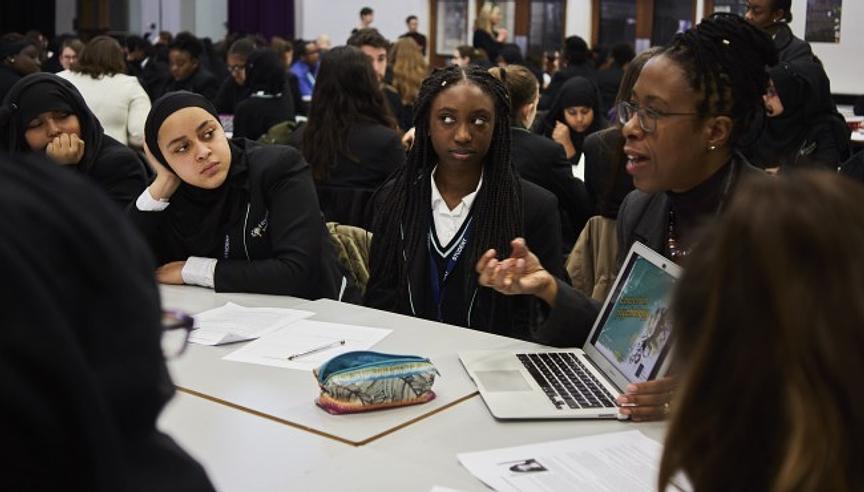Edge Future Learning can be broken down into three key strands:
Careers Events
In keeping with Edge’s founding ethos, Edge Future Learning firmly believe that hand in hand with ‘learning’ comes ‘doing’, so for the last three years they've been running events that show young people that there are many paths to success, including through technical and professionaleducation.
Working in partnership with Education and Employers, we invited professionals who had studied for vocational qualifications or completed an apprenticeship into classrooms across the country. They shared their experiences with nearly 100,000 children and young people, demonstrating that a university degree is not a prerequisite for a successfulcareer.
They also took schools into organisations such as the National Theatre and the Grosvenor House Hotel in Park Lane, giving students a glimpse into unfamiliar industries and introducing them to roles they might never have thoughtof.
They are continuing this work as part of Edge Future Learning, demonstrating that profound employer engagement benefits young people and the businesses desperate for that critical talent pipeline.
Curriculum Development
The Government’s statutory guidance and new careers guidance was issued in December2017. This requires all secondary schools to work towards and ultimately meet theGatsby benchmarks.
Edge have been particularly focusing on helping teachers to meet benchmark 4 which requires all teachers to link curriculum learning to careers. This is because it has proven to be one of the more challenging benchmarks for schools and teachers tomeet.They have worked with employers to create curriculum resources which are directly linked to the National Curriculum.
Teacher Externships
Edge have been working with secondary schools to give teachers the opportunity to link with local employers to form projects based around an externship day. The days were open to teachers from all subject areas - as well as there being subject specific days for mathematics, geography and; design andtechnology.
The aim was to give teachers an insight into the world of work and the career opportunities available in local businesses. The externships also gave teachers some practical examples of how their subject area is used in the work place. This was then followed up by students undertaking an investigation of the business, with the end product being a presentation to the employer and/or their peers. The project has been externally evaluated by the International Centre for Guidance Studies: Derby University under the title Give Yourself the Edge (GYTE).
GYTEachieved many of the programme outcomes theyarticulated:
- 80% of teachers surveyed agreed or strongly agreed that participating inGYTEgave them an insight into the world ofwork.
- Schools were able to develop or strengthen employerlinks.
- Students had raised aspirations; 67% of students agreed thatGYTE helped them think about what they wanted to do for further learning and work. However the programme was less likely (45%) to have effected theirGCSEdecisionmaking.
- Students were more aware of the types of jobs and career paths available through local employers; 84% of students reported they had learned a lot about local jobs and employers throughGYTE.
- 75% of teachers surveyed were more confident about offering career advice after participating inGYTE.
- GYTEhelped foster employer engagement; all employers were interested in continuing their support to both the schools and the programme.
- Stakeholders believed thatGYTEcould improve by 1) increasing the amount of employer engagement between pupils and employers and 2) enabling the type of placements that can help develop curriculumteaching.



